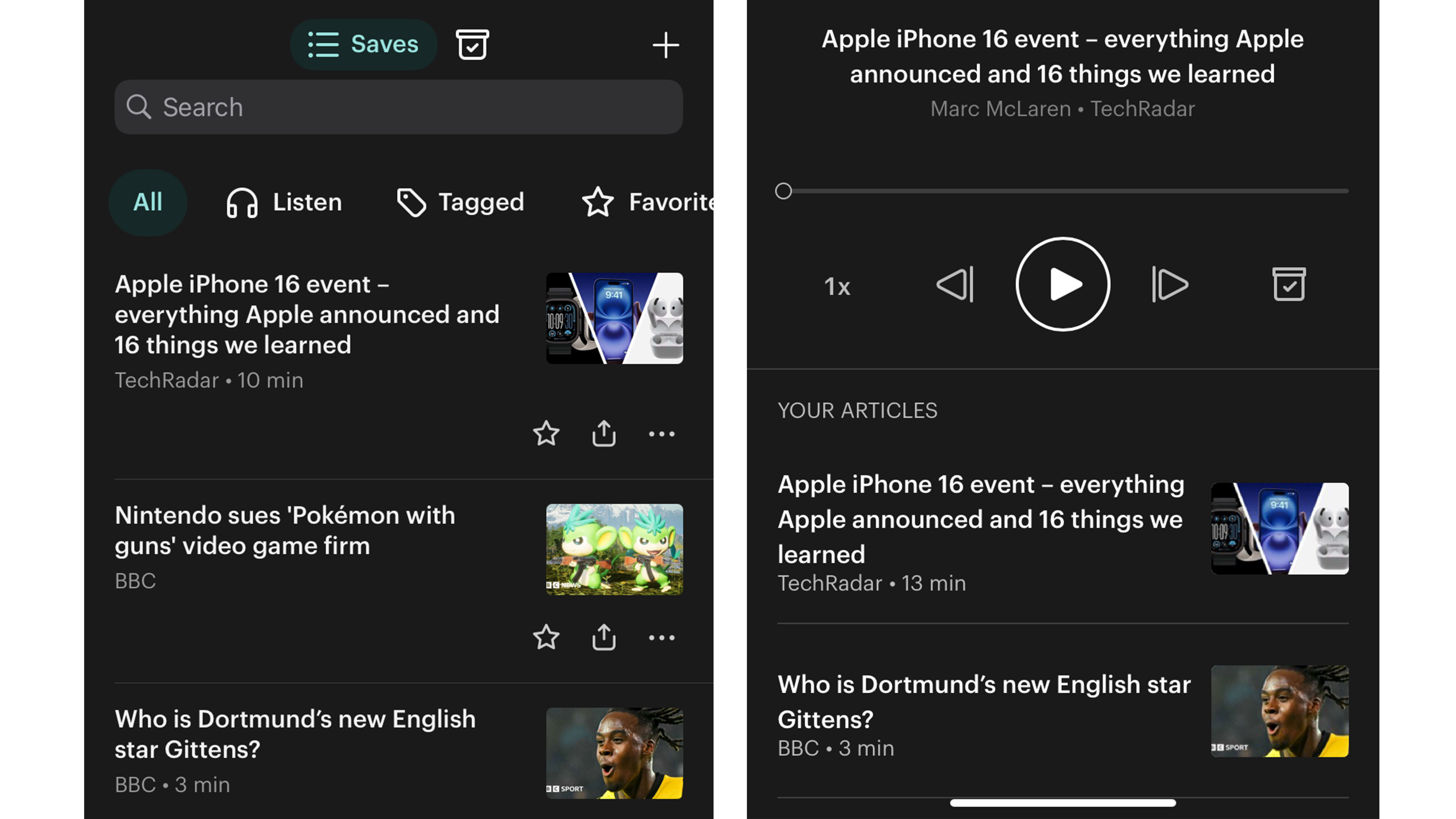- Mozilla is closing popular read-it-later app Pocket
- There are several alternatives that you can use instead
- The Fakespot online shopping extension is also being shuttered
Mozilla is closing down the popular Pocket app, which lets you save articles from the web so that you can read them later. The company is also shuttering Fakespot, a browser extension used to expose fake product ratings to help you avoid getting misled when shopping online.
Pocket lets you save articles to the app that you can then read at another time. While many of the best browsers like Google Chrome have built-in bookmarking, Pocket is different in that it tweaks the experience to make reading more enjoyable. To that end, it adds its own formatting so that articles appear in a uniform, readable style, and it also allows you to add tags and highlights for better organization.
In a blog post, Mozilla said the move was made to help it focus on its Firefox web browser, adding that “the way people save and consume content on the web has evolved, so we’re channeling our resources into projects that better match browsing habits today.” The company has also posted a more detailed guide to its decision and explained what will come next on its website.
Pocket will shut down on July 8, 2025. As of now, new users can no longer download the app or purchase new Pocket Premium subscriptions, with current subscribers being refunded on a pro rata basis. Existing Pocket users will be able to export their saved articles until October 8, 2025, after which time their data will be permanently deleted. Mozilla has published a guide on exporting your Pocket saves to help with the process.
As for Fakespot, its apps, website and extensions will become unavailable on July 1, 2025. The Review Checker feature that’s built into the Firefox web browser will stop working on June 10, 2025.
Sorely missed

I’ve used Pocket religiously for many years, and the move to shut it down came as an unwelcome surprise. Since I found out about the move, I’ve been looking for alternative apps that let me save articles and read through them at my leisure.
So far, I’ve seen Instapaper come highly recommended. It’s designed to help you save articles from around the web and display them in a simple, easy-to-read format. It can even speak articles aloud so you can listen on the go.
Another alternative is Readwise Reader. Like Instapaper, it’s great for saving from the web, but it also works with RSS feeds, X threads, PDFs, newsletters, YouTube videos, and more. There’s integration with Readwise’s highlighting capabilities, plus a beautiful design that’s easy on the eye.
There’s also Raindrop, which some of my TechRadar colleagues wholeheartedly recommend. This bills itself as a bookmark manager, so it helps with organizing almost anything you find on the web, not just articles. It’s built for teams and will automatically back up any files and web pages you add, ensuring you can keep reading even if the original source is lost.
Despite coming across these alternatives, I can’t say I’m not disappointed to lose Pocket. One of its best aspects was its suggested articles feature, which has helped me find an incredible array of fascinating stories that I’d otherwise never have discovered. Once it goes, it’ll be sorely missed.













Leave a comment